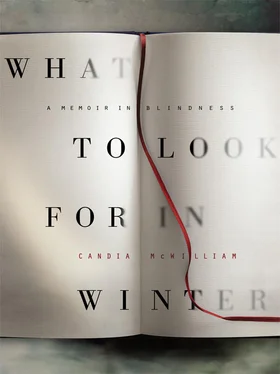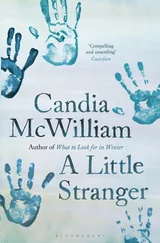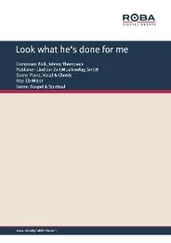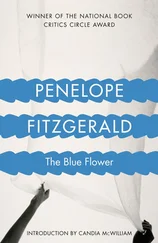My parents and I visited England only for very specific familial reasons. I was always carsick and usually moving between anxiety and terror, relieved by daydreams, at this period all about being a doctor of great bravery during a selection of historical scenarios; I suspect I was usually disguised as a boy in these roles. My father had never passed a driving test, braked on corners and both parents smoked in the fuggy leather cupboard that was our car within. It wasn’t our car, really, but the National Trust for Scotland’s. This non-ownership was significant to my sense of our hardly holding on to our ledge in life.
Our reasons for visiting England included my parents’ bookseller friend Ben Weinreb and his family. Ben gave me the dummy of a book called London 2000 to draw in. Both date and city seemed lifetimes distant from me and my life; now we are years beyond it and Ben is dead. We visited other friends, a couple called Myrtle and Bear; he was known as Bear, since, as a diabetic, he couldn’t have sweet things. He too was a book dealer. Myrtle was a potter. There were some rather glamorous friends in Hampstead, he perhaps a sculptor, she certainly a sexpot. She struck me as the best sort of sexpot because her warmth went out in all directions, not merely to men.
The main reason that we ever went as a family to England was to visit grandparents. This was never comfortable. My widowed paternal grandmother lived at Windsor Castle in a tiny house in the cloister that nonetheless had a speaking tube to call long-departed servants. She had been a nurse at Great Ormond Street Hospital and bore the loss of her husband with a daily exercised Christian faith and ingrained modest fortitude. My grandfather, Ormiston Galloway Edgar McWilliam, a man whose temperament was made for peace and the arts of peace, fought as a teenager in the trenches in the Great War and was killed at the end of the Second World War while laying a smokescreen in the tail end of an aeroplane that was shot down, I believe, by our own side. Among his close friends was the painter Henry Lamb, and the letters between them show a relish for family life and a sensitivity to preposterousness both at war and in the smaller frays of family life. Lamb’s letters are often illustrated with quick sketches of his children being dried after a bath, paddling and so on. In one of his letters my grandfather describes tucking my six-year-old father back into bed after the child had been awoken by the flare and crackings of the Crystal Palace burning down, of which my grandfather gives an eyewitness account. My grandfather wrote and illustrated a published book before he was twenty. It is about the battle at Suvla. He must have known he was going to die then.
But he didn’t, or not in that war. I have the photographs of him as the captain of both rugby and cricket teams at Charterhouse. On the back of each photograph he has written in almost every case the date and place where each smiling young man in the fading picture had fallen in war.
His widow, my grandmother’s was not a false piety; she was a deeply believing Anglican whose daily notebooks used to shock me with their probity when I was ten and thought I knew a lot. Clearly I knew nothing. What decent child goes through the notebooks of her grandmother? Each day she recorded the church services she had attended, to whom she had written, and from whom she had received, letters, and how much money she had spent. The amounts were very small. She had an expressed quality of humility that enraged my mother and there is no doubt at all that my humble grandmother looked very far down upon her tall, ostensibly worldly daughter-in-law. The word, though it was never used, would have been ‘vulgar’. Certainly my paternal grandmother regarded my maternal grand parents as being ‘not quite…’ or, that damning deprecation, ‘too grand for us’.
My mother teased my father unkindly about his attachment to his mother and referred to her mother-in-law, also unkindly, as ‘Navy Blue Throughout’. These had been the words that my grandmother had replied with when my mother’s mother asked her what she would be wearing to the wedding that would conjoin their ill-matched families.
I called my paternal grandmother ‘Grand’mère’. I suspect this was to get over some difficulty about my own mother refusing to address her as ‘Mother’, as convention might then have asked. In due time, my stepmother would address her thus.
My mother’s own mother wasn’t that fond of Mummy either. My grandmother Clara was from theatre people; her own mother and grandmother, with their long beautiful legs, had been male impersonators on the stage. My maternal great-grandmother was a friend of Vesta Tilley. There are lost photographs of my transvestite ancestresses looking wonderful in tails and tights. How I wish I had them now. I packed them away in a trunk before I moved into my first marital home. The trunk was stored by a friend. The friend died sadly, surprisingly, dreadfully, young. How could I even mention my trunk of keepsakes to a family that had lost its head? As it is, the trunk of travesties sounds like the framing device for one of those dull novels that are meant to show us some flat tale of parallel lives separated only by time, whose moral is that we are all sisters under the skin. I worry, too, that my long-lost trunk may contain things of which I might be ashamed, satin trousers, proposals of marriage, lists of things to do that will resemble in every way those lists I write thirty-five years on.
Neither Mummy nor I inherited the great legs. My grandmother Clara’s first speaking role on the stage was as Little Lord Fauntleroy, aged five. She was so symmetrically and astoundingly elongated and so facially beautiful that she was continually stopped on the street. I have one photo of her, singing the part of Mad Margaret in Ruddigore . Considering the town’s later importance in my life, it is odd that I should, for the earliest part of it, have thought that ‘Basingstoke’ was an invented word that you employed to calm female lunatics. In the Mad Margaret photograph, my glorious grandmother’s glorious hair reaches to her calves. Later when she cut it off her father, who owned a string of theatres in the East End and on the South Coast, didn’t speak to her for months. He could eat twelve dozen oysters at a sitting. My grandmother Clara was known as Clare; she had two sisters, Ruth and Edna. Edna married and lived in Guernsey, impossibly exotic. I remember meeting Great-Aunt Edna only once, during a half-term out from my English school. We sat in some silence. Nobody’s accent sounded real except my grandmother’s self-invented grande dame tones. Poor, blind Ruth became a counter in my parents’ stony game that no one could win.
My father was a dab hand at playing ducks and drakes, making flat stones bounce off the, I suppose, epilimnion. As their marriage worsened, my mother would say, ‘Throwing stones can blind people. My Aunt Ruth was blinded, aged seven, for life by a boy throwing stones.’
You could see my father was getting bored with my mother. This boredom made her anxious. I was anxious for them both, with their separate damaged hearts. I can’t remember a time when I didn’t know that my father’s heart was literally fragile since he had had rheumatic fever during his National Service. He was meant to avoid physical risk and exertion; of course he didn’t. And since I lived with my face as far up my mother’s sleeve as I could get it, so as to smell her, I knew all about the heart that was worn there too.
Our visits to my maternal grandparents were approached with sublimated satire and some dread by my father. God knows how my mother felt. I think the person with whom she was easiest was Ernest, who had been her father’s soldier-servant and stayed on. She was adored by Ernest in a way that she was not by her parents to whom her gender, height, appearance and marriage were all a disappointment. Her father called her ‘Scruff’, not kindly meant.
Читать дальше











